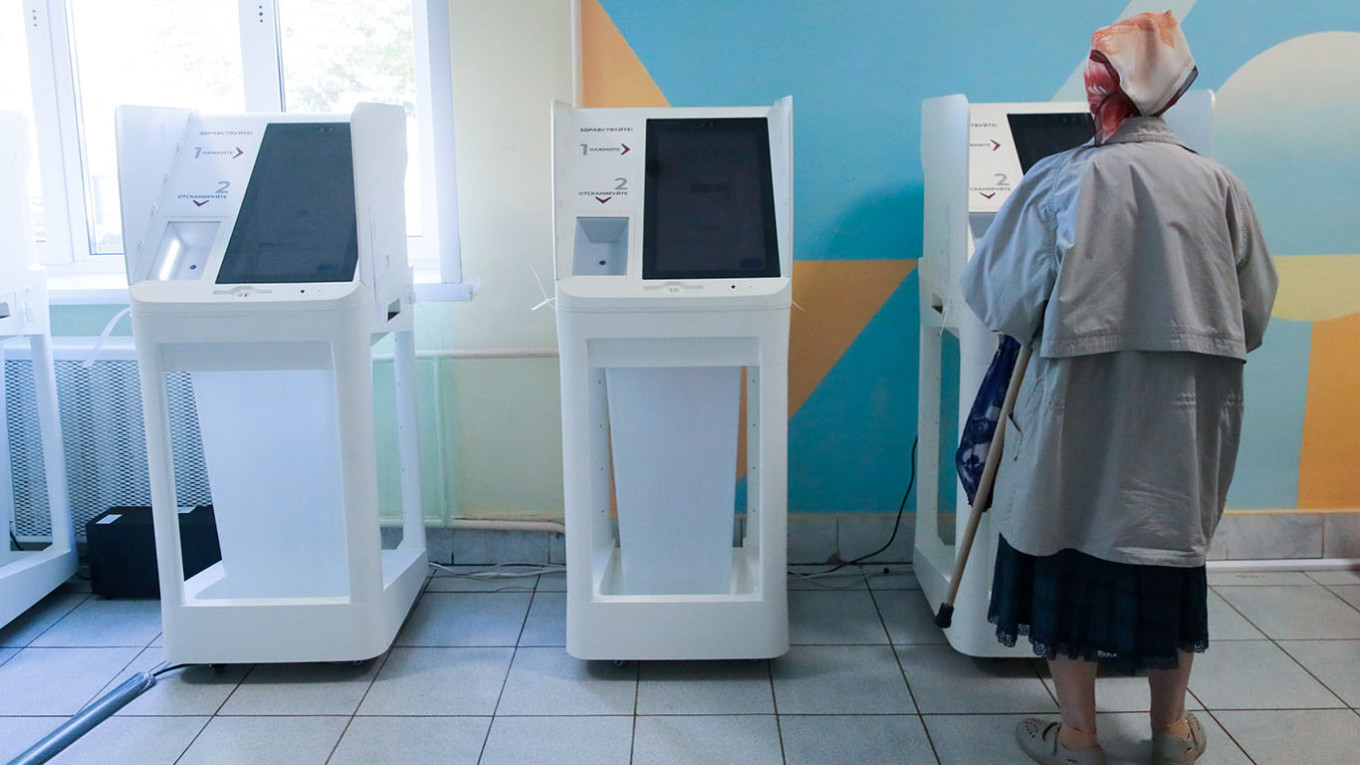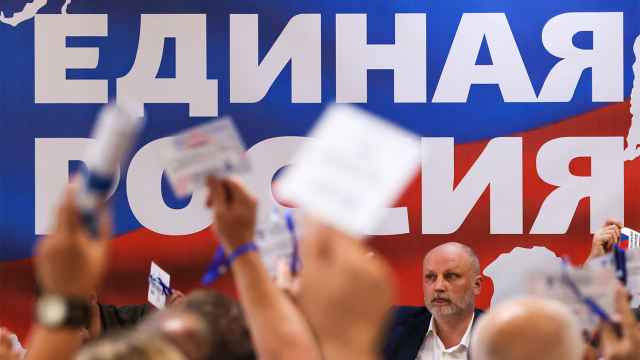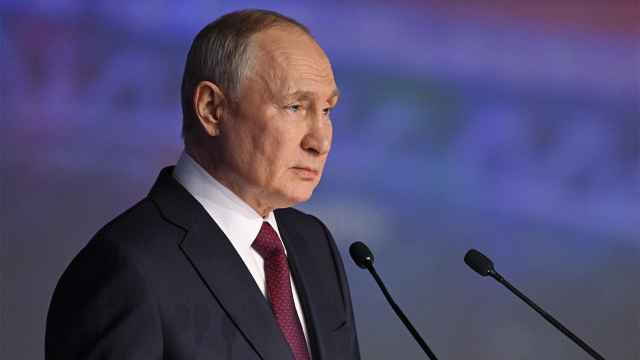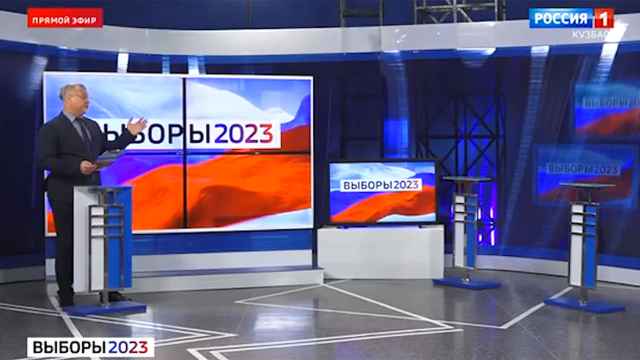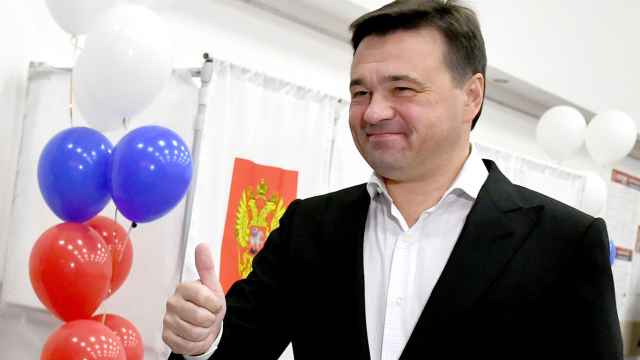After 25 years of work, Russia’s only independent election monitoring organization, Golos, is sadly no more. This week, Golos’ remaining leadership made the decision to close the organization rather than subject its affiliates to further criminal charges following its co-chair Grigory Melkonyants receiving a sentence of five years in a prison colony on trumped-up charges.
Golos’ demise will have far-reaching, pernicious effects on our ability to understand the dramatic unwinding of the Russian electoral system. Even amid a hardening of the regime, Golos stood out in its brave and unwavering activities: from training election observers to collecting vital statistics on the specific forms of malfeasance at work across the country. Russia still holds thousands of elections every year. We have lost the unparalleled leader in recording, parsing, and analyzing electoral developments.
For years, journalists, activists and academics have relied extensively on the groundbreaking tools developed by Golos. In the run-up to the 2011 parliamentary elections, Golos collaborated with Gazeta.ru to launch its Karta Narusheny (“Map of Violations”).
This web platform was truly one of a kind, inviting citizens and civil society activists from across the country to report instances of electoral violations they had personally experienced.
Citizens were encouraged to submit supporting documentation: emails, screenshots of WhatsApp and text messages, photos of illegal campaign materials and even leaked documents from state and private institutions.
These reports were then parsed and elegantly displayed on a national map. Within seconds, site visitors could identify hotspots of electoral malfeasance, see patterns in the types of manipulations being used and access the raw reports.
Over its 14 years of existence, Karta Narusheny compiled crowdsourced information on tens of thousands of citizen reports. The data provided analysts and academics with an unfiltered, nearly comprehensive look at how President Vladimir Putin’s regime has undermined free and fair elections. By my latest count, raw data have appeared in at least 15 published academic articles, making it one of the top resources for social scientists working on Russia. For example, scholars used the reports to better understand when and why fraud occurred, as well as to validate other forensic measures.
Karta Narusheny also played a critical role in my own research. Together with my co-authors Timothy Frye and Ora John Reuter, we combed through hundreds of reports for our upcoming book on voter mobilization at work — “Workplace Politics.”
We found emails from bosses sent to their workers, compelling them to attend meetings with regime candidates. Other internal company documents described in detail how managers were to be held responsible for every employee who did not vote in elections, and how to report turnout using coded language over text and chat apps.
Elections in Russia will continue without Golos. But our knowledge of how voters are being oppressed will be severely curtailed.
It was not only analysts who relied on Golos for objective information. In 2011, one public opinion poll showed that 39% of Russians had heard of Karta Narusheniy. Our own survey work uncovered that over one-fifth of respondents had heard specifically about Golos, an incredible feat for a small civil society organization.
Importantly, Golos had fairly high name recognition among supporters of the Putin government, suggesting voters were following its activities from across the political spectrum.
Beyond crowdsourcing, Golos served as a hub for data about elections which is otherwise becoming harder to access.
In the late 2000s, Russia’s Central Election Commission (CEC) was admirably committed to the open data ethos, posting comprehensive information about elections on its main website.
But as the years went on, its accessibility faltered. From the beginning, the site itself displayed all the relevant information, but offered no search functionality and only weak filtering tools to zero in on specific candidates or access data in bulk.
More critically, the CEC website added security features such as Captcha and scrambled text in mid-2017 to deter scraping by data scientists analyzing irregularities in turnout and vote counting. Complete election data became considerably harder to access.
Here again, Golos filled the void. Its encyclopedia of candidates and full election calendar provided the transparency that the CEC was attempting to destroy. Using these web resources, academics and investigators could locate historical campaign data for any candidate, as well as construct tools to more easily access the underlying CEC data.
Golos’ archive of national, regional and local electoral legislation, as well as trenchant analysis of the ongoing sinister changes to these laws, was an invaluable resource for those of us tracking the evolution of the electoral system. One could find weekly updates about electoral procedures, filled with both broad analysis and minutiae from analysts committed to improving Russia’s democracy. All of that is now gone.
Perhaps most importantly, Golos trained hundreds of thousands of election monitors across the country. Volunteers learned how to identify election violations and work with lawyers to hold officials accountable. In many respects, Golos’s observers have been the first line of defense against the most egregious abuses of power.
Indeed, without Golos’s investment in training local monitors, there simply would have been no consistent, nationwide independent observation of elections in Russia. The OSCE boycotted several elections because of the severe restrictions placed on international observers. The few foreigners who did come, as Golos handily exposed, were disproportionately drawn from right-wing parties in Europe more sympathetic to the Putin government.
Golos’s website was the first stop for those of us trying to parse the latest dynamics in campaign finance, or media coverage of candidates and parties, or the introduction of electronic voting. Without fail, before every major regional or national election, you could find the most comprehensive catalogue of electoral deficiencies. Since 2010, at least 50 different studies have integrated Golos’s election reports into their analyses of the Russian electoral system.
Finally, Golos worked hand-in-hand with researchers to rigorously test whether in-person observers have any effect on the way elections were run. During the 2011 parliamentary elections, Golos cooperated with three academics to randomly assign election monitors to precincts in 21 Russian cities. The results were humbling and contradicted previous work that found large effects. The presence of monitors only slightly reduced turnout and the vote share of the ruling party, United Russia, perhaps because there was only one monitor assigned to each precinct. This research helped shape future efforts to deploy observers more strategically.
Tracking Russian elections going forward will be like stumbling around an ever-darkening room. We are now facing the demise of the most innovative and brave organizations at a time of unprecedented change to the Russian political environment. Elections are rapidly converting to electronic voting. Access to raw data is being heavily restricted and electoral commissions are being stripped of what little autonomy they have left.
The loss of projects such as Golos (as well as potentially Declarator, which has also come under attack by Russian law enforcement) leaves a gaping hole in society’s ability to scrutinize these shifts. Without independent eyes on the process, electoral fraud will become not just easier, but less detectable. All Russians lose out from this assault.
A Message from The Moscow Times:
Dear readers,
We are facing unprecedented challenges. Russia's Prosecutor General's Office has designated The Moscow Times as an "undesirable" organization, criminalizing our work and putting our staff at risk of prosecution. This follows our earlier unjust labeling as a "foreign agent."
These actions are direct attempts to silence independent journalism in Russia. The authorities claim our work "discredits the decisions of the Russian leadership." We see things differently: we strive to provide accurate, unbiased reporting on Russia.
We, the journalists of The Moscow Times, refuse to be silenced. But to continue our work, we need your help.
Your support, no matter how small, makes a world of difference. If you can, please support us monthly starting from just $2. It's quick to set up, and every contribution makes a significant impact.
By supporting The Moscow Times, you're defending open, independent journalism in the face of repression. Thank you for standing with us.
Remind me later.



